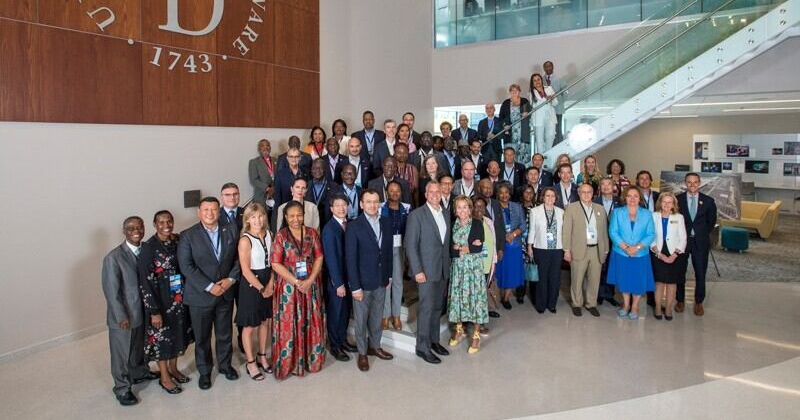Inspiring global partnerships in innovation, ambassadors learn about cutting-edge research at UD’s STAR Campus
Foreign ambassadors learned about the cutting-edge research taking place at the University of Delaware as part of a visit to the First State on July 21 through the U.S. Department of State’s Experience America program.
More than 40 diplomats — representing countries across five continents — met with UD’s leadership and toured the Science, Technology and Advanced Research (STAR) Campus, a hub for innovative activities that combines top academics and research with industry and community partnerships.
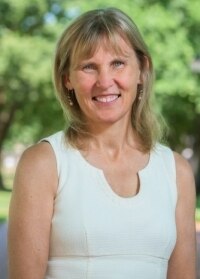
Provost Laura Carlson
“[It] was a true blank canvas on which we started painting the future of the University, our state, our region in the world,” Carlson said. “The University envisioned this as a place where UD’s strengths in teaching and research could intersect with the needs of our local and global communities, coming together to envision a brighter future for all. This transformational impact continues to happen in real time. We’re happy to have you here and just share with you our vision for what’s possible to help shape a better future.”
Led by the U.S. Department of State, the Experience America program connects foreign ambassadors with academic, business, community and cultural leaders with the goal of building relationships to promote economic investment, commerce and dialogue.
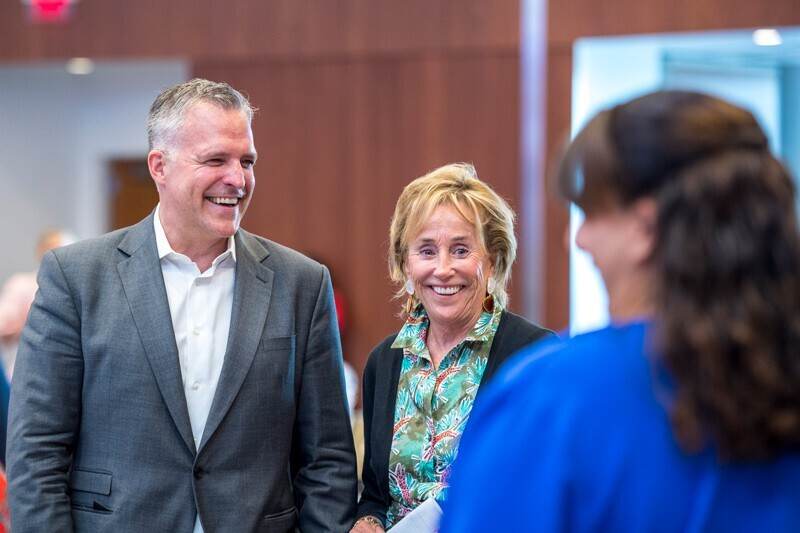
U.S. Chief of Protocol Ambassador Rufus Gifford and Biden Institute Chair Valerie Biden Owens welcome foreign ambassadors to UD’s STAR Campus.
“This school, with its innovative and entrepreneurial spirit, opened doors to possibilities for students like me and my brother,” said Valerie Biden Owens, chair of the Biden Institute and the president’s sister.
As part of the presentation, Kelvin H. Lee, UD’s Gore Professor of Chemical and Biomolecular Engineering and Director of the National Institute for Innovation in Manufacturing Biopharmaceuticals (NIIMBL), gave an overview of UD’s research and innovation profile. He shared that UD is among only 16 universities in the country to be designated as a Land Grant, Sea Grant and Space Grant institution. The Carnegie Foundation for the Advancement of Teaching classifies UD as a research university with very high research activity — a designation given to less than 3% of U.S. colleges and universities.
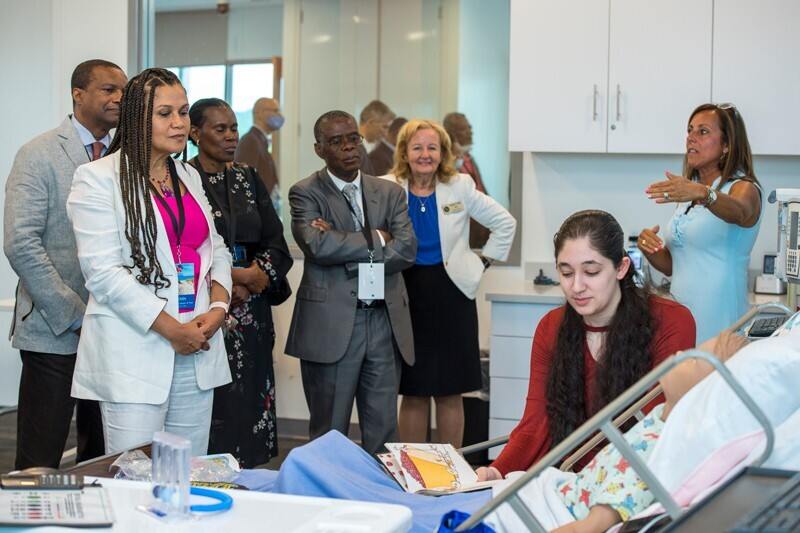
Foreign ambassadors tour UD’s nursing simulation lab, experiencing firsthand how UD is transforming new knowledge into positive impacts for the world.
Following the presentation, the ambassadors toured the campus’ health design studio and nursing simulation lab, where they experienced firsthand how UD is transforming new knowledge into positive impacts for the world. They also had an opportunity to hear about the work taking place at Chemours, a commercial partner located at STAR Campus.
“One of the things that we hope to focus on here is having an impact from our research and from our education and translating that to be able to have an impact on individuals right now,” said Kathleen S. Matt, dean of UD’s College of Health Sciences. “That is the purpose of creating the STAR Campus, where the community is welcomed in and they are a part of inspiring the work and the training and the research that we do. And then at the same time, it inspires us to translate what we learn and take that to the outside.”
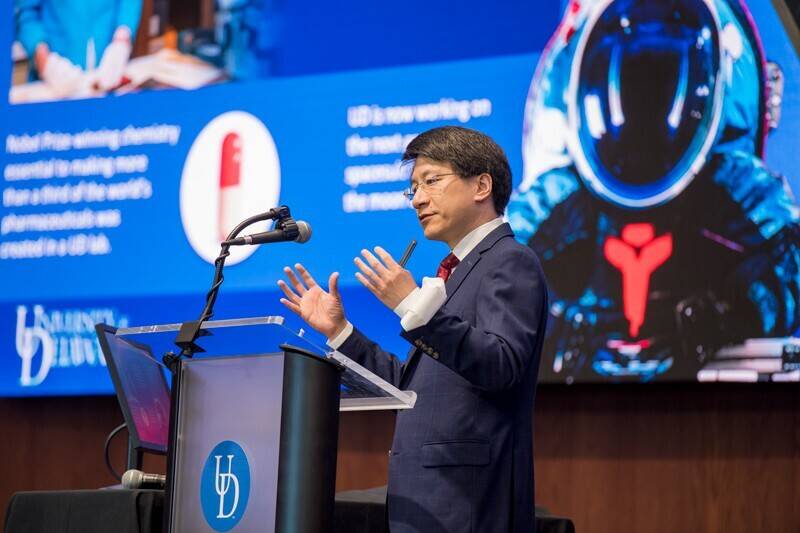 Following the STAR Campus presentation and tour, the ambassadors were part of a Delaware business leaders roundtable and visited the DuPont Experimental Station and Global Innovation Center. Throughout the day, the diplomats learned how research, technology and entrepreneurship have transformed the state in myriad ways.
Following the STAR Campus presentation and tour, the ambassadors were part of a Delaware business leaders roundtable and visited the DuPont Experimental Station and Global Innovation Center. Throughout the day, the diplomats learned how research, technology and entrepreneurship have transformed the state in myriad ways.
“When I was confirmed as chief of protocol, one of the things I wanted to do first was this — physical person-to-person human diplomacy,” U.S. Chief of Protocol Ambassador Rufus Gifford said. “It matters so much.”
Article by Amy Wolf | Photos by Kathy F. Atkinson (featured on UDaily, 08/02/2022)

